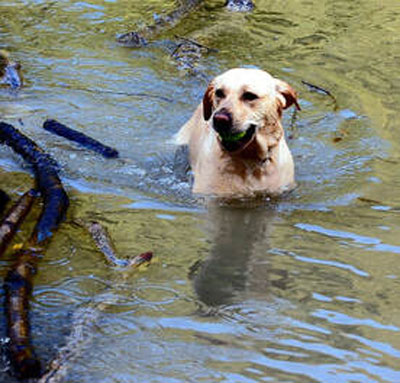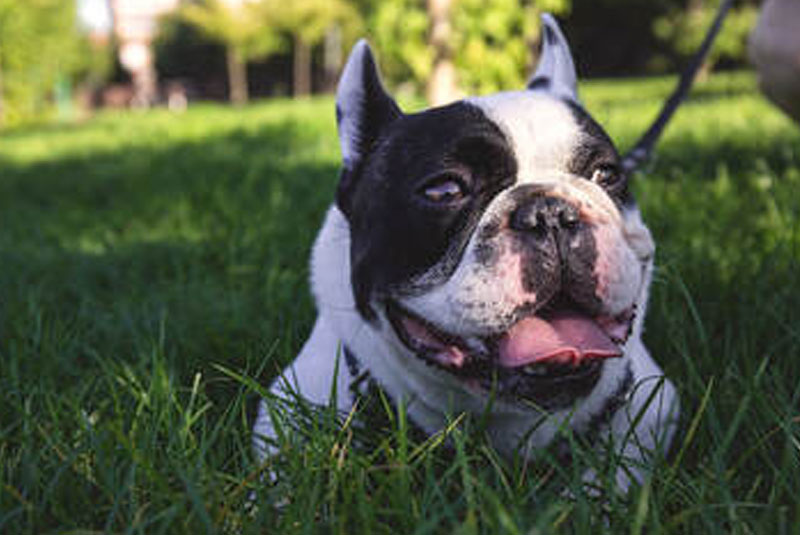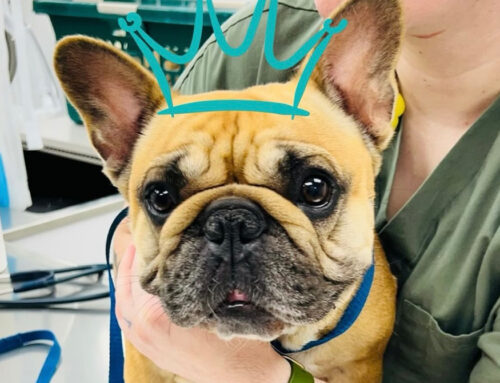When it’s blazing hot outside, it’s time to take a moment to make sure our four-legged friends are safe and comfortable. A new study of almost a million dogs in Britain confirmed what veterinarians have long suspected – older dogs, overweight dogs, and certain breeds are at increased risk of heat-related illness.
Which breeds are at most risk?
- Bulldogs, French bulldogs
- Chow Chows
- Dogue de Bordeaux
- Greyhounds
Dogs and cats with flat faces are at increased risk because of their narrow airways. They have a harder time cooling off by panting, and dogs can’t sweat to cool off like we do. Working dogs can also succumb to heat stroke because they are so eager to please. They will often continue running to the point of collapse rather than stopping to take the break they need. Older dogs can be more susceptible because of underlying lung or heart conditions that may be mild or asymptomatic during temperate weather and only show up in hot weather. Overweight dogs are also more prone to overheating because their airways are narrowed by the excess fat and the excess weight acts like a marine mammal’s blubber, trapping body heat inside.
Rabbits are also very susceptible to the heat. They can tolerate cold temperatures much more easily. Rabbits kept outdoors should have a shaded hutch, a fan to move air and open hutch sides to allow a breeze, and a frozen water bottle to lay on in addition to fresh drinking water.
So how do you prevent heat exhaustion?
If you have a dog or cat who is at risk of heat-related illness, avoidance is the key.
- Permit access to air conditioning when possible, or shade with plenty of drinking water available. Use a fan to get the air moving.
- Take walks during the cooler parts of the day.
- Never leave your pet in the car without you. Pets have died when air conditioning gave out in the running car and the owners didn’t notice until it was too late. A car without the air conditioning running can hit 100F in less than 10 minutes, even with the window cracked.
Notice the signs of heat exhaustion early:
- Excessive panting
- Glassy eyes
- Mental dullness
- Gums either blue-tinged or bright red
- Loss of coordination
- Trouble breathing
- Collapse
- Bruising
If you think your pet is too hot:
- Stop exercising immediately
- Get indoors or into the shade
- Provide water to drink (not ice)
- Cool your pet by spraying them with water (cool to luke-warm, not ice-cold). Pay special attention to the paws, armpits, and groin for the most effective cooling.
- Seek emergency veterinary care immediately if your pet is having trouble breathing, collapses, or if your pet isn’t back to normal in 10 minutes









Leave A Comment